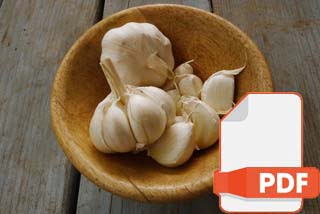Anti-hyperlipidemia of garlic by reducing the level of total cholesterol and low-density lipoprotein

Download - PDF
ABSTRACT
Background:
This study aimed to understand the impact of garlic on improving blood lipids using a meta-analysis. Methods: A literature search of the PubMed, EMBASE, and Cochrane Library databases was performed using keywords such as “garlic” and “hypercholesterolemia,” and the deadline “July 14 (th), 2017.” After extracting relevant details, each selected literature was evaluated for quality according to the quality evaluation criteria of bias risk recommended by Cochrane Collaboration recommendations and heterogeneity tests were performed. Standardized mean difference (SMD) and 95% confidence interval (CI) were evaluated using R 3.12 software. The publication bias was assessed using Egger method.
Results:
A total of 14 eligible papers published from 1981 to 2016 were included. The quality of the literatures was of moderate to high qualities. The values of TC (SMD=–1.26, 95% CI, –1.86 to –0.66), low-density lipoprotein (LDL) (SMD=–1.07, 95% CI, –1.67 to–0.47), and high-density lipoprotein (HDL) (SMD=0.50, 95% CI, 0.06–0.94) after taking garlic in the experimental group and the control group have statistical significance, while there was no significant difference of TG in the 2 groups (SMD=–0.16, 95% CI, – 0.87–0.55). However, the result of HDL was reversed when removed some of the literatures. No significant publication bias among the eligible studies with values of TC (P=.0625), LDL (P=.0770), HDL (P=.2293), and TG (P=.3436).
Conclusion:
Garlic can reduce the level of TC and LDL instead of HDL and TG, indicating the ability of anti-hyperlipidemia.
Source: https://www.ncbi.nlm.nih.gov/pmc/articles/PMC6392629/

